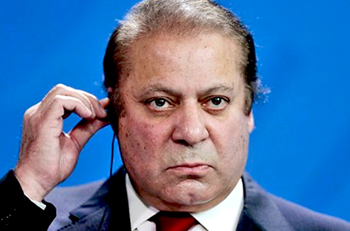 Islamabad, Nov 22: US President Barack Obama spoke to Pakistan Prime Minister Nawaz Sharif over telephone Friday and urged him to take up the Kashmir issue with India.
Islamabad, Nov 22: US President Barack Obama spoke to Pakistan Prime Minister Nawaz Sharif over telephone Friday and urged him to take up the Kashmir issue with India.
Sharif said an early resolution of the Kashmir issue would bring enduring peace, stability and economic cooperation to the south Asian region, Dawn online reported.
Sharif apprised Obama of Pakistan's relations with India and referred to his visit to India earlier this year, which was aimed at taking the Pakistan-India relations forward.
However, the Pakistani side claimed that the cancellation of foreign secretary level talks by India and the "unprovoked firing" across the Line of Control (LoC) "indicated that India was averse to normalisation of relations with Pakistan."
"Thus, while we remain open to the resumption of bilateral dialogue, the onus is on India to create a conducive environment in this regard," an official statement said.
The statement also claimed that President Obama understood Pakistan's position.
The two leaders also discussed the state of the ties between the US and Pakistan.
Obama noted that the two countries enjoy a strong and robust relationship, while Sharif felt that the US-Pakistan ties were on an upward trajectory since his government came to power last year.
Obama was pleased that Sharif's government had determined the right economic priorities and was trying to overcome the challenges, the report said.
During the conversation, Sharif recalled his meeting with the Obama in Washington last year and their subsequent interaction at the Nuclear Security Summit in The Hague in March this year, said the official statement.
Obama also informed Sharif of his forthcoming visit to India.
Sharif, on the other hand, conveyed the expectation of the people of Pakistan to welcome Obama to Pakistan sometime in the future, according to the report.
Obama also assured Sharif that he would undertake a visit to Pakistan at an early date, as soon as the situation normalised in Pakistan.
Discussing the regional situation, the Sharif referred to the improvement in Pakistan-Afghanistan relations, as exhibited by Afghan President Ashraf Ghani's recent visit to Islamabad.
The US president appreciated the Pakistani premier's efforts in this regard, and called it pivotal for peace and stability in the region.
The two leaders agreed to stay engaged to further strengthen Pakistan-US relations, to promote peace and prosperity in South Asia.






Comments
Add new comment